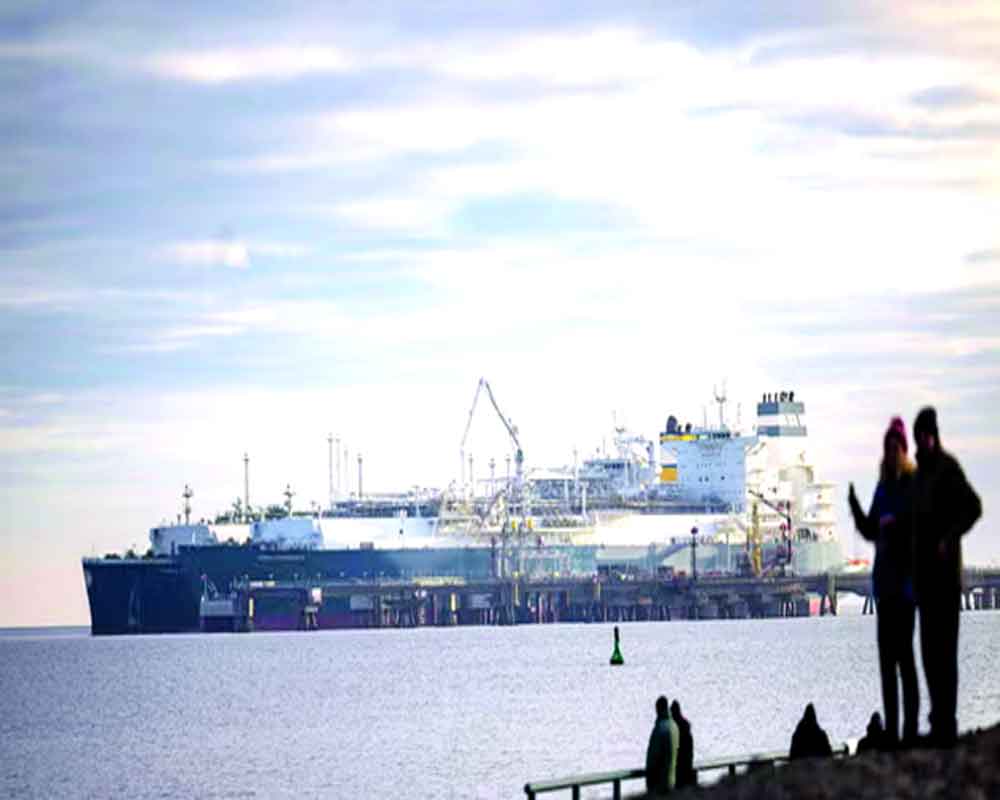With recent attacks by Houthi rebels on vessels passing through the strait, the region faces heightened security risks which could disrupt world economy
The Bab-el-Mandeb Strait, a narrow passage linking the Red Sea to the Indian Ocean via the Gulf of Aden, has thrust itself into the international spotlight. Situated on the northern side of the Red Sea lies the renowned Suez Canal, a monumental feat of engineering connecting the Red Sea to the Mediterranean Sea. This vital waterway, spanning approximately 193 kilometres in length and nearly 200 meters in width, serves as a lifeline for global trade and maritime transportation.
However, recent events have cast a shadow over the tranquillity of these waters. The Houthis, a rebel group from Yemen, have launched a series of attacks targeting vessels passing through the Bab-el-Mandeb Strait. These assaults, primarily aimed at ships with ties to Israel, have sparked concerns over maritime security and the free movement of goods through this crucial chokepoint.
In response to these escalating tensions, Operation Prosperity Guardian, spearheaded by the United States, was initiated to safeguard the Bab-el-Mandeb and ensure the unimpeded flow of maritime traffic. Over 20 nations have expressed their support for this initiative, underscoring the collective effort to protect this strategic waterway.
The motives behind the Houthi attacks are rooted in geopolitical complexities, with their actions perceived as retaliation against Israel's military operations in Gaza. Houthi leaders have explicitly stated their intent to target any ship associated with Israel, leading to a spate of attacks on vessels carrying goods to or from the region. The Houthis contend that peace in Gaza is intrinsically linked to stability in the Red Sea, warning of further conflict if hostilities persist.
The significance of the Red Sea extends beyond its immediate vicinity, serving as a conduit for maritime trade connecting Europe to the rest of the world. The Mediterranean Sea, accessed through the Suez Canal, plays a pivotal role in global shipping routes, facilitating trade between continents and enabling vital economic exchange. Traditionally, ships traversed the African tip to reach their destinations, but the recent turmoil has complicated maritime navigation. With a substantial portion of goods bound for Israel passing through the Suez Canal, disruptions in this route have reverberated across global supply chains. The increased travel distance and associated costs pose significant challenges for shipping companies and commodity markets alike.
The strategic importance of the Suez Canal has historical roots, dating back to its inception in the 19th century. However, its relevance has endured through numerous conflicts, including both World Wars, underscoring its status as a linchpin of global maritime trade.
The economic ramifications of disruptions in the Bab-el-Mandeb Strait are far-reaching, affecting industries reliant on the timely delivery of goods and materials. Major shipping companies, such as the Mediterranean Shipping Company and Merk and Hapag Lloyd, have suspended operations in the region, exacerbating supply chain disruptions and logistical challenges.
Amidst these geopolitical tensions, the concept of the blue economy emerges as a beacon of sustainable maritime development. Championed by advocates of ocean conservation, the blue economy emphasizes the responsible utilization of marine resources for economic growth while ensuring environmental preservation. India, with its extensive coastline and maritime interests, plays a pivotal role in shaping the future of the blue economy. Through initiatives like the Sagarmala project and SAGAR policy, India seeks to bolster its maritime infrastructure and strengthen its naval capabilities to safeguard its maritime interests.
However, divergent perspectives on maritime sovereignty and strategic alliances complicate the geopolitical landscape. While India and the United States share a strategic partnership, differences in maritime policies and military operations underscore the complexities of navigating international waters.
Russia's stance on maritime cooperation underscores the need for inclusive approaches to ocean governance, emphasizing collaboration over competition. As global leaders grapple with the challenges of maritime security and sustainable development, the Bab-el-Mandeb crisis serves as a poignant reminder of the interconnectedness of oceanic ecosystems and geopolitical dynamics. In conclusion, the Bab-el-Mandeb Strait stands at the intersection of geopolitical rivalries and maritime commerce, symbolizing the challenges and opportunities inherent in our interconnected world. As nations navigate these turbulent waters, cooperation and dialogue remain essential to ensuring the security and prosperity of maritime nations and the preservation of our oceans for future generations.
The Future of Maritime Security and Sustainable Development
Looking ahead, addressing the complex issues surrounding maritime security and sustainable development requires concerted international efforts and innovative solutions. The Bab-el-Mandeb crisis serves as a wake-up call for global leaders to prioritise ocean conservation and cooperative strategies to mitigate geopolitical tensions. Investments in technology, such as satellite surveillance and unmanned maritime vehicles, hold promise for enhancing maritime surveillance and response capabilities. Additionally, strengthening legal frameworks and multilateral agreements can foster greater cooperation among nations and promote sustainable ocean governance.
Ultimately, the Bab-el-Mandeb crisis underscores the interconnected nature of global maritime challenges and the urgent need for collective action. By working together to address the complex issues facing our oceans, we can build a more resilient and sustainable future for generations to come.
(The author is associate professor at Pondicherry Central University, views are personal)


























